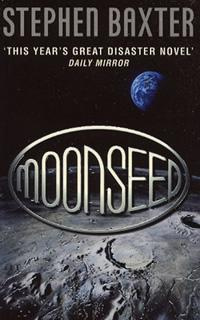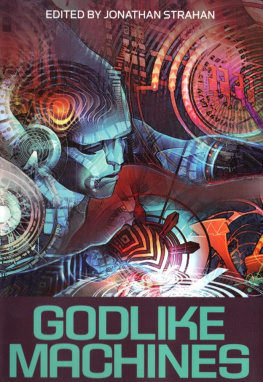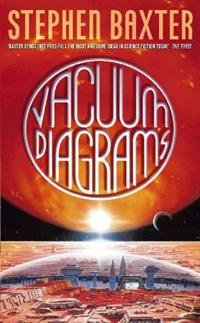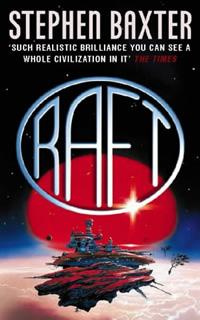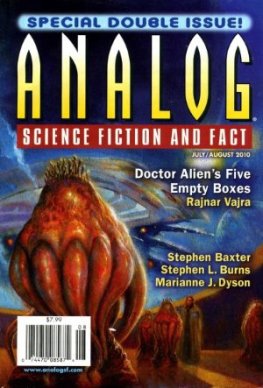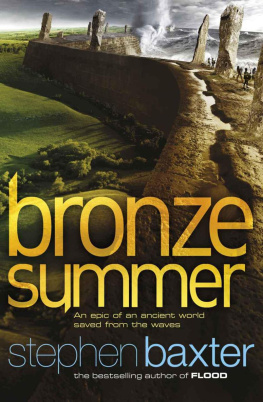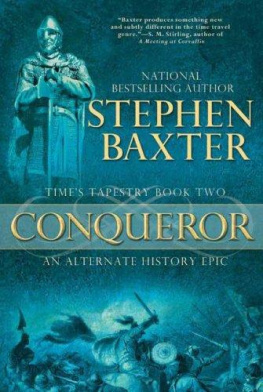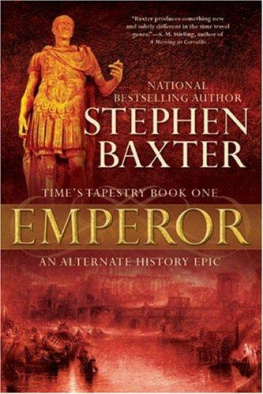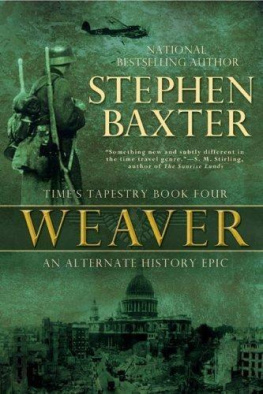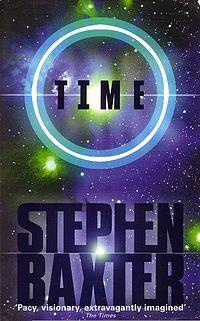XI
15 October
Wednesday morning at Birdoswald was clean and sharp, the start of a bright fall day. Tom Mackie had requisitioned the farmhouse here to serve as his base of operations, he told Mary as he welcomed her from her hotel. But as he escorted her around the site, Mary saw how the farmhouse nestled at the heart of much older ruins, the remains of a Roman fort set on a bluff of high ground.
I can see why the Romans came here, she said.
Oh, yes, a military man would make the same decision again. Birdoswald - actually they called it Banna - was an integral part of the system of defence based around Hadrians Wall. Housed a thousand troops at its peak. Seems they had to drain the land, clear a forest, and import the limestone to build it. Kept the peace for three hundred years - which, if you think about it, is longer than modern Britain has existed, since the Act of Union. Well be doing well if we last so long, eh?
They walked back to the farmhouse. Rather ugly, isnt it? Its most recent renovation was Victorian. The architects had added crenellations, amid a general look that Mary thought of as Gothicised. But they reused Roman stone. I can show you an altar of Jupiter thats been built into the wall of a stable. And theres evidence of occupation of the site before the Romans ... But I apologise, he said.
For what?
For treading on your toes. Youre the historian, after all.
Not at all, Captain. Im impressed you know so much.
Well, historys always been something of a hobby of mine. I took nat sci at Cambridge - that is, natural sciences, specialising in physics. But I did do rather well at history at my school matriculation. And Ive been somewhat keen to find out more about the history of this place since your researches directed me here.
Something of a hobby. Somewhat keen. After so long in Britain Mary was used to decoding the circumlocutory language of upper-crust types like this Captain Mackie: the more self-deprecating the words, the deeper the passion. Im flattered you took me so seriously. To open up a new Military Intelligence branch here, all on my say-so.
Well, this does seem to be a pivotal site for your anachronistic conspiracy theories, doesnt it? And it wasnt all that hard to get the funding, actually, at least for intelligence work. For one thing theres been a general withdrawal from the south-east, as you can imagine. Sites like Bletchley Park are suddenly a lot more vulnerable.
Bletchley Park? Wheres that? What are they up to there?
Oh, you know, war work, the usual. I worked there for a bit myself. And as for the project were engaged in here, well, the threat youve hinted at seems rather bizarre, but the country is awash with rumours about Hitlers super-weapons. A Nazi time machine isnt even top of the league table of outlandishness, believe it or not. If only for the sake of morale, the government must be seen to be making an effort to investigate all these threats, and, if necessary, put a stop to them. And you do have a certain notoriety in government, Mrs Wooler, thanks to your pieces on Peters Well. I actually have some quite high-level support. Ive a line to Frederick Lindemann, Churchills personal science advisor. Winston calls him Prof.
But even so I do have to compete for funding. Even now, as things seem to be moving towards a certain denouement, Im desperately short of anything resembling solid evidence to show my superiors. One reason I wanted to talk to you today.
What kind of denouement?
All will be revealed. He extended his arm and escorted her indoors. But first, Mrs Wooler, let me offer you a coffee - generously supplied by your own government as it happens ...
If youre making me coffee, you can call me Mary.
He smiled. And Im Tom.
Mackie had set up his office in the farmhouse kitchen; it was by far the best room in the building, he said, and the warmest in winter. The most striking feature was a spear of blackened wood and heavily rusted iron, suspended on the wall over the fireplace. Mary was no expert on the period, but it looked Roman to her.
They sat at a big scuffed wooden table, over which generations must have broken bread together, and spoke of the mysteries of space and time.
He folded his arms. Lets start from the beginning. You developed your interest in all this because of your contact with this Austrian fellow, Benjamin Kamen.
It was at the time of the invasion.
Yes. He was picked up as a prisoner during those eventful days. We believe he was taken at first to a POW camp in Kent. Place near Richborough, on the coast.
Thats where my Gary is, she said in a rush.
Yes, we know, he said, not unkindly. May not be a coincidence; a lot of their more valuable prisoners seem to be held there - and that includes Gary, an American citizen. We actually have some intelligence that Gary protected Ben - helped him conceal his racial identity.
Mary wondered: helped? Why the past tense? Had something changed, for Ben or Gary?
Mackie went on, Now, your encounter with Kamen set you off on an historical investigation. But once you tipped me off I followed the chaps career from a different direction. Before the war he was, in fact, a promising young physicist ... Bags I go first about all that, and then you can tell me about the history. He grinned at her. You know, I think Ill enjoy this. All rather a jolly game, isnt it?
She studied him. My son is in a POW camp, and I havent seen him for a year. I lost my daughter-in-law to an SS killer squad. Ive followed up this crazy stuff to keep myself busy, this and my WVS work and my bits of journalism. Better than sitting around on my ass while the bombs fall. But a game, it isnt.
Sorry. No. Quite right. Its just, you know ... He sighed. Shut up, Tom. Now - Ben Kamen. Nine or ten years ago he worked in Vienna, as a student of a man called Kurt Godel. I dont suppose youve heard of him.
Only in connection with Ben, Mary said.
Eventually Kamen made his way to Princeton, the Institute of Advanced Studies, where he met up again with his old mentor Gdel. Who by this time was working with Einstein himself. Mackie pulled a pipe out of his breast pocket, dug a tobacco pouch from a drawer in the table, and began to fill the bowl meticulously, strand by strand. Remarkable chap, actually. Gdel, I mean. One of the top mathematicians of his generation. And Kamen must have been pretty sharp to keep up with him. He was very young.
Now, Einsteins theories are physical. They concern the nature of space and time, the structure of the universe, that sort of show. But they are couched in mathematics, and when it comes to maths Godel has a peculiar forte. He is a master of doubt, you might say. He studies formal systems, that is mathematical theories, and niggles away at them until he finds inconsistencies. His most famous result is a proof that even simple arithmetic - you know, just adding and subtracting - can contain a statement you can neither say is true nor false. And so arithmetic, and by implication all of mathematics, can never be made complete and decidable.
Youre already losing me, Mary admitted.
All right. Think of it in terms of a set of laws. No matter how wise your law-making, there will always be cases that cant be decided within that framework. What you have to do, of course, is add another ruling. But that shows that the law can never be made complete. Thats not surprising to anybody whos come up against a county magistrate, such as myself.
But what Godel did was to find a worm of doubt in mathematics itself, at the heart of what seems the most abstract and logical of all our intellectual pursuits. Even simple arithmetic can never be made complete. I mean, this doesnt stop maths working, from day to day; but we know there will always be limits to what we can say about it. There is a gap between our intuition and the truth about mathematics, you see. And having dropped that bomb, Gdel turned his attention to Einstein ...



